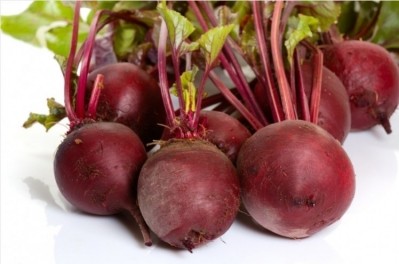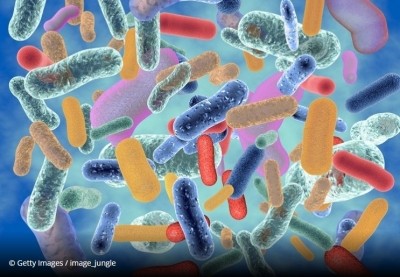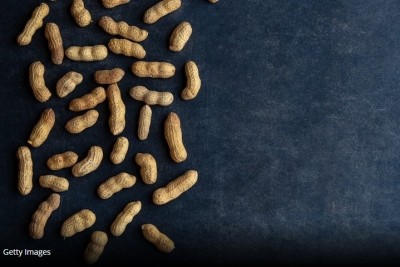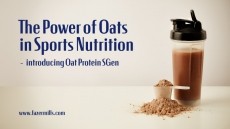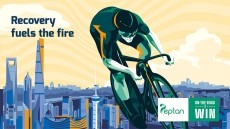Tart cherry juice, kiwifruit, glycine, alpha-lactalbumin and high GI carbs show promise for improving athlete sleep

According to a new review supported by the Australian Rugby Foundation and conducted by scientists at the University of Canberra, all of these sleep strategies have merit.
“Carbohydrate ingestion to improve sleep parameters is inconclusive, although high glycaemic index foods appear to have small benefits. Tart cherry juice can promote sleep quantity, herbal supplements can enhance sleep quality, while kiwifruit and protein interventions have been shown to improve both sleep quality and quantity,” wrote the researchers in the journal Nutrients.
Despite evidence affirming the importance of sleep for recovery and reduction of fatigue-related injury, elite athletes appear to experience more sleep disturbances than the general population. This is thought to be due to a combination of factors including night-time competitions, training schedules and travel.
It is well established that nutrition plays a vital role in athlete performance and recovery, but the science behind the role of specific foods, macronutrients and micronutrients in the sleep-wake cycle is in its infancy.
Meta-review
The Australian researchers therefore carried out a literature review to investigate the nutritional strategies that can be employed to enhance sleep quality. Given the limited volume of studies in the athlete population (four in total), the inclusion criteria were expanded to include studies that reported the outcomes of nutritional interventions to improve sleep in otherwise healthy adults. In total, 20 studies were included in the review.
The nutritional interventions investigated in these studies were: carbohydrates, protein, tart cherry juice, glycine, L-serine, beetroot juice, kiwifruit, GABA (an amino acid produced by natural fermentation) and a herbal sleep supplement. However, not all of these produced conclusive findings.
High GI carb meal aids sleep
Carbohydrates are the most studied macronutrient in relation to sleep. While evidence from studies involving athletes is limited, studies in healthy populations are more definitive, with consistent reports of improved sleep following high glycaemic index (GI) carbohydrates. Overall, across three studies, high GI carbohydrate consumption increased total sleep time by eight to 62 minutes and reduced the time between bedtime and sleep onset by 6-19 minutes.
In one study of particular relevance to athletes, researchers provided young males with either a low or high GI meal immediately after an evening sprint session. The high GI meal substantially improved total sleep time, sleep onset latency (the time between bedtime and sleep onset), sleep efficiency (ratio of sleep time:time in bed) and wake after sleep onset (the time awake after initial sleep onset).
This effect is thought to be due to an increase in the plasma ratio of tryptophan to large neutral amino acids.
“Tryptophan is an essential amino acid and serves as a precursor to the synthesis of serotonin and melatonin, both important regulators of sleep. By increasing the ratio, tryptophan can more readily cross the blood brain barrier, leading to an increase in the synthesis of seratonin and then downstream increases in secretion of melatonin,” explained the researchers.
Preliminary evidence for protein
Two studies explored the effects of protein on sleep. Both used the whey protein isolate alpha-lactalbumin, which is reported to have the highest natural level of tryptophan of any protein food source. In one of the studies, pre-sleep protein supplementation increased total sleep time by 55 minutes, alongside a 7% increase in sleep efficiency. However, in the other study, which was performed on a small sample of cyclists, no effect was observed.
“While there is preliminary evidence to support the efficacy of alpha-lactalbumin to improve sleep, further well-designed studies are required to confirm its effectiveness,” noted the authors.
Tart cherry juice
The two tart cherry juice studies were both performed in general population cohorts. They showed an increase in total sleep time of 29-39 minutes, modest improvements in sleep efficiency (2.7-3.7%) and slight reductions in sleep onset latency (four to nine minutes) and wake after sleep onset (17 minutes).
The explanation for this effect could be that tart cherries contain approximately 13ng of melatonin per kg, which is critical for the sleep-wake cycle in humans. The high antioxidant content of the cherries may also enhance sleep by reducing oxidative stress.
“Further research is needed to assess the use of tart cherry juice in an athletic population, including its effects on sleep and physiological recovery,” concluded the researchers.
Kiwifruit, GABA and glycine
There are a variety of other nutritional strategies that have been explored for their ability to improve sleep, including kiwifruit, GABA and glycine.
Improved sleep was reported in poor sleepers who ingested two kiwifruits an hour before bed over a four-week intervention period.
This could be attributable to the presence of seratonin (a known sleep promoting hormone) and/or high levels of folate in kiwifruit. Folate deficiency has been linked to insomnia and restless leg syndrome.
Ingestion of GABA has also yielded improvements in the sleep quality of poor sleepers. GABA is an inhibitory neurotransmitter and its receptors in the central nervous system are often targeted by pharmacological agents such as benzodiazepines for treatment of insomnia.
Glycine is another inhibitory neurotransmitter that has been linked to improvements in sleep quality, along with L-serine, a glycine precursor.
“While further evidence for the efficacy of glycine and L-serine in athlete populations is required, these results suggest both proteins may offer athletes dissatisfied with sleep issues, or facing situational sleep restriction, a means by which to improve their sleep,” wrote the researchers.
Sleep enhancement guidelines
The researchers concluded that the following sleep enhancement strategies can be derived from the studies published to date:
- Consume a high GI carbohydrate meal 2-4 hours before bedtime
- Incorporate tart cherry juice concentrate into an athlete’s daily routine when sleep may be impaired: 1 x 30ml on waking and 1 x 30ml before the evening meal.
- Consume 20-40g of a protein source rich in tryptophan, such as alpha-lactalbumin enriched whey protein, 2 hours before bedtime.
- Regular kiwifruit consumption an hour before bed.
- Glycine at a dosage of 3g taken before bed.
Source: Nutrients
Published online: doi.org/10.3390/nu13051586
'Nutritional interventions to improve sleep in team-sport athletes: a narrative review'
Authors: Gratwicke M, Miles KH, Pyne DB, Pumpa KL, Clark B
